You take a photo. They never capture what you see! You want others to identify something in the photo, so you try to edit it. The subject in the photo is dark, so you lighten the image. This makes the whole thing brighter. It is still difficult to make out the significant features that separate your subject from others.

Contrast
“Contrast in photography is the visual ratio of different tones in an image. This difference is what creates the textures, highlights, shadows, colors and clarity in a photograph” (Shramenko, 2017). Contrast is what sharpens the features. When you increase the contrast, you make lines darker and lighten the spaces around them. They stand out more.
Contrast “means more than just a play of light and shadows. It’s the difference between the tones, colors, and textures of a photo. This technique can convey interesting and deep stories in the frame in the best way” (Shramenko, 2017).
Contrast is found in literature, as well. It’s what gives stories their life. It’s the spark that animates Doctor Frankenstein’s assembly of dead flesh, and turns it into a monster. Contrast energizes narrative. The dryness of Oklahoma, contrasted with the imagined juicy grapes of California, spurs the Joads to sell nearly everything and hit the road. Contrast shows action. It identifies what to pay attention to. There are many things happening in any given text, but the friction between two opposites will heat-up a story. The conflict between light and dark, colorful and colorless, strong and weak, dull and exciting, good and evil, rich and poor commands attention! (Literary Devices, 2013)
I’ve been reading a smart and funny book with my fifth grade gifted students; “The Strange Case of Origami Yoda” (Angleberger, 2010). In it, a seemingly half-witted 6th grade boy provides what usually turns out to be incredibly wise advice, albeit through a weird, hand-made finger puppet and silly voice. The boy’s name is Dwight. His finger puppet is Origami Yoda.

In addition to learning some of our own origami, I had my students research the history of the ancient art form. I didn’t know this before, but the art of paper folding used to be limited to the wealthy, due to the high price of washi (origami) paper (Georgia Tech, n.d.). It was used in religious rituals and formal ceremonies. Eventually, as paper became more affordable, origami became an increasingly available activity. Still, people needed the time, intellect, and patience to learn the art.
This got me thinking about Dwight and his origami finger puppet. At the beginning of the story, it is explained that Dwight made up his Yoda origami on his own. He took one of the most common materials from the school setting and turned it into something extraordinary. No one else in the text produces any artwork, let alone origami! And, Dwight doesn’t stop with a paper figure; He places it on his finger and gives it life.
Dwight is the opposite of popular, but through Origami Yoda he is extremely influential, and therefore powerful. Many students who wouldn’t give Dwight the time of day want to talk to Origami Yoda. They present questions and respect Yoda’s answers. The same characters look down on Dwight as king dweeb.
Toward the end of the book, an adversarial character (Harvey) makes his own Origami Yoda. In contrast to Dwight’s, Harvey’s is well-made. That is because Harvey, unlike Dwight, looked up professional directions online. Supposedly, Harvey’s imitation of Yoda’s voice, from the Starwars movies, is a better imitation, too. But, Dwight’s Yoda is truer to the spirit of Yoda. Dwight’s Yoda uses the force… the force of creativity and originality. Harvey’s is more closely related to the clone-like, clean, black and white storm troopers from the movie series than the swampy, wrinkly, green, old creature of the planet Dagobah!
In addition to this obvious contrast between two characters and their crafts, there lies several more subtle contrasts. Harvey constantly pushes his opinions onto everyone else, whereas Dwight has people approach him, imploring his. Dwight does not seem to try to get others to believe in his Yoda. Harvey needs to kill everyone’s belief in the finger puppet. While Harvey narcissistically uses his Yoda to hurt Dwight, the true Origami Yoda is primarily concerned with helping people. Harvey freely admits to giving his origami voice, but Dwight pretends that it isn’t him talking; Origami Yoda is a separate entity from the person whose finger he rests. The differences go on and on!
As I reflected on all of the subtle and overt contrasts within the story, the idea of origami being a pastime of the wealthy contrasting with Dwight’s social poverty hit me. I thought about contrasting elements of everyday life. Why are holidays special? They are “holy days,” set apart from others. They are only as special as we make them. For some, all we do is acknowledge that it is a special day; Flag Day. Others demand time off, arts and crafts, and even parades! A meal is made special when we cook food we normally wouldn’t, or too much food, or invite special guests to share it with us. Do you use unique dinnerware to serve the food? (As I write this, Thanksgiving is right around the corner!)
When I was in college, I worked at a fine-dining restaurant. Among other things, we folded white cloth napkins into fans for every place setting. When patrons left the table, we would replace napkins with folded, clean cloths. It was that kind of establishment.
I was remembering this art of napkin folding while researching origami. I brought some cloth napkins into the classroom to show students how to fold them into fans, so that they could dress up their next holiday meal.
As I folded the napkins to display on a cheap, plastic table for my students, it brought to mind a picnic lunch in a park. What makes that kind of activity so romantic? It is the contrast between eating a well-prepared meal, complete with plates, silverware, folded napkins, and drinks on the ground with nothing but a blanket shielding you from dirt, insects, and nature. The meal is out of place. You are bringing two otherwise foreign entities together. That is romantic. The greater the contrast between the elements, the more romantic.
Explanation
When you are attempting to bond two surfaces together, it is often recommended that you rough up one of or both surfaces before applying adhesive. Why? This is because when you “unsmooth” a surface, you provide more surface space for the adhesive to attach. You may not be able to see them, but tiny ridges are produced all over the surface; microscopic mountains and valleys that almost double how much area there is for the bonding agent to grab onto.
This is a metaphor for what happens when authors create contrast between their characters, settings, conflicts, eras, etc. By roughing up the character with differing, even exaggerated traits, appearance, name, hobbies/interests, the author helps the character stick in the reader’s mind. It deepens the essence of the character. The more contrast, the more powerful this bond becomes.


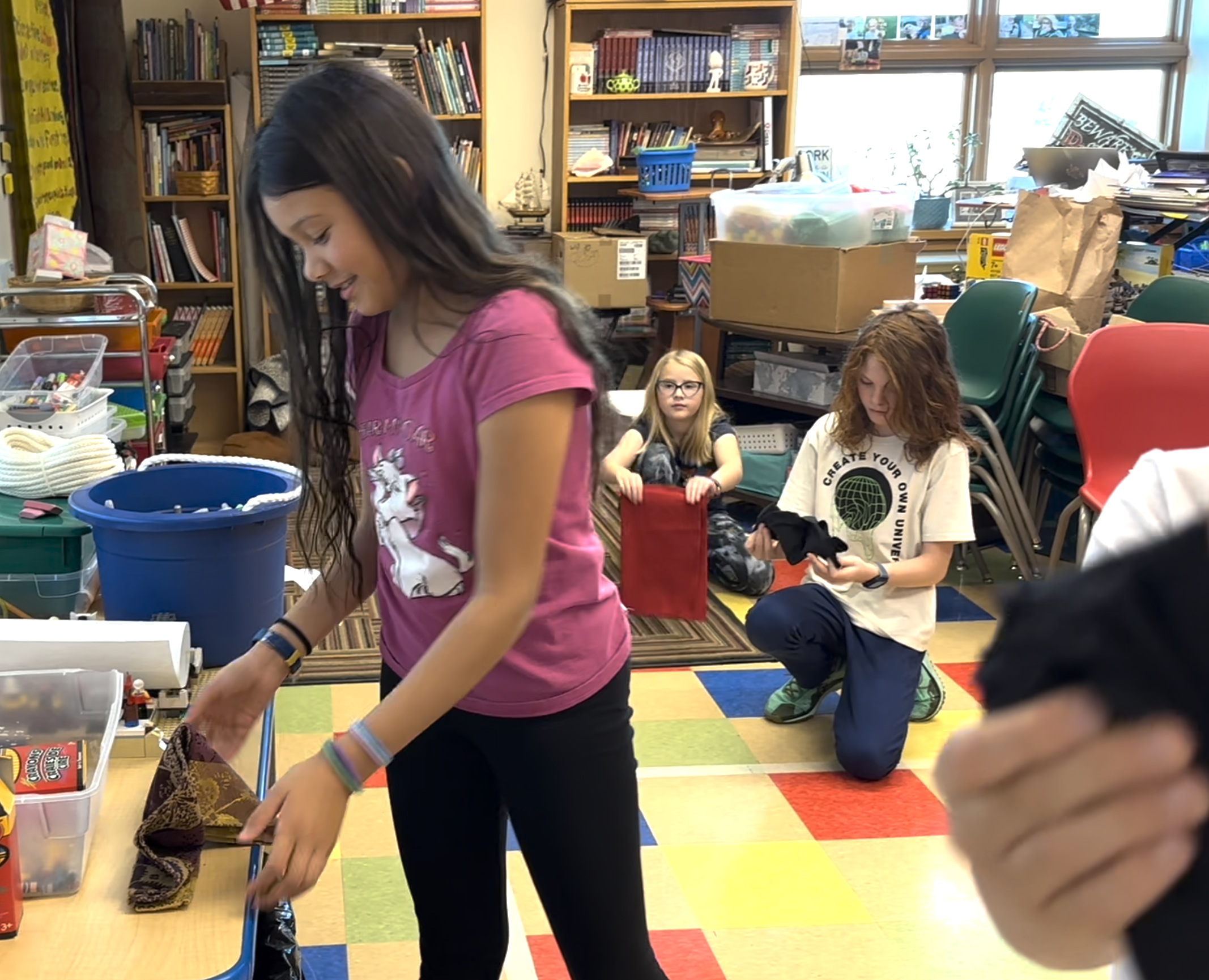
Warning
Of course, you must make sure that there are enough common elements for a reader to cognitively grab onto. If you rough up a surface to the point that the thing you are gluing has been sanded away, there won’t be any point in gluing. Likewise, if you make your character or setting so different that no one can even imagine it; as in it does not have enough things in common with what readers are familiar with; they can’t mentally grab hold of the idea. It will slip through their cognitive fingers and be lost. Provide enough connections to real life; experienced life; but cut deep lines where the character looks different from everyone else in one or two features, walks with a limp, smells like formaldehyde, snaps his fingers constantly, greets every single person with a high five, wears flip flops even in the snow, has an affinity for bugs, and so on.
The napkin folding that I brought to the classroom was connected to origami in that it was folding, and it produced a work of art. The folded napkin is unnecessary. And, you are more likely to see it in a fancy place. It was different from origami in that the napkins do not hold their shape the way paper does. But, because of this you can easily fold and refold the napkin without a crease affecting it. Paper is plentiful, but a cloth napkin is more rare. There is a balance between contrast and familiarity.
Students ought to remember the napkin-folding experience (it will stick) because it was similar to creating origami, and it will be extra memorable (the bond will be stronger) because folding napkins during school was a weird activity.
Dear Students,
And now, having read this lengthy explanation for why I brought cloth napkins to school and taught you how to fold them into fancy fans for food decor, I hope I have provided the adhesive that will make this activity not only stick in your mind, but become useful as a tool for teaching the power of contrast. Good luck creating just the right amount of it in your writing.
Sources
Angleberger, T. (2010). The strange case of Origami Yoda . Amulet Books.
Georgia Tech. (n.d.). Kinetic Joy: Basic Principles of Paper Engineering. Robert C. Williams Museum of Papermaking. https://paper.gatech.edu/kinetic-joy/history-origami

Literary Devices. (2013). Contrast. Retrieved November 16, 2023, from https://literarydevices.net/contrast/
Shramenko, S. (2017, May 29). Understanding Contrast in Photography. Skylum. https://skylum.com/blog/understanding-contrast-in-photography









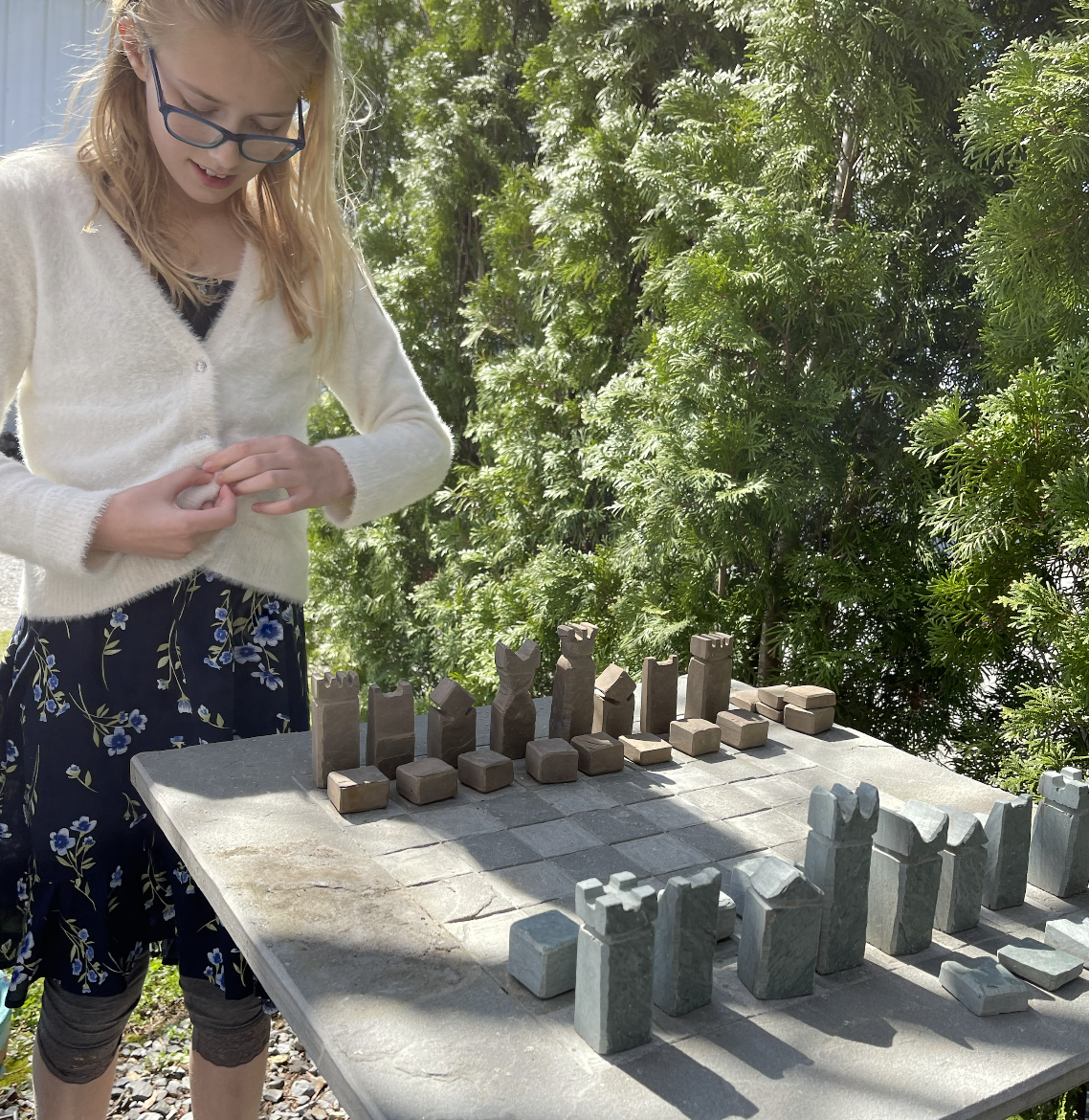
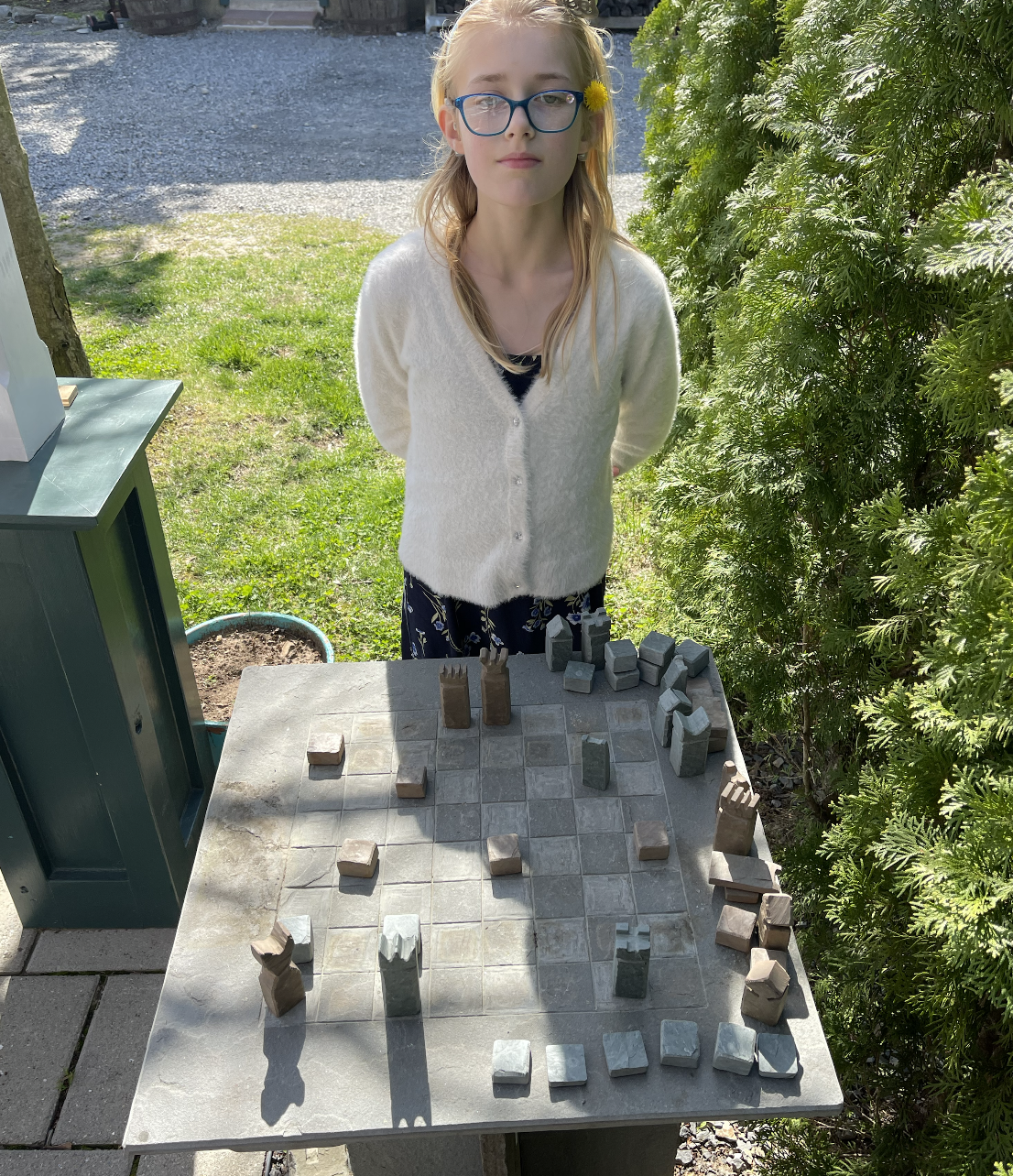
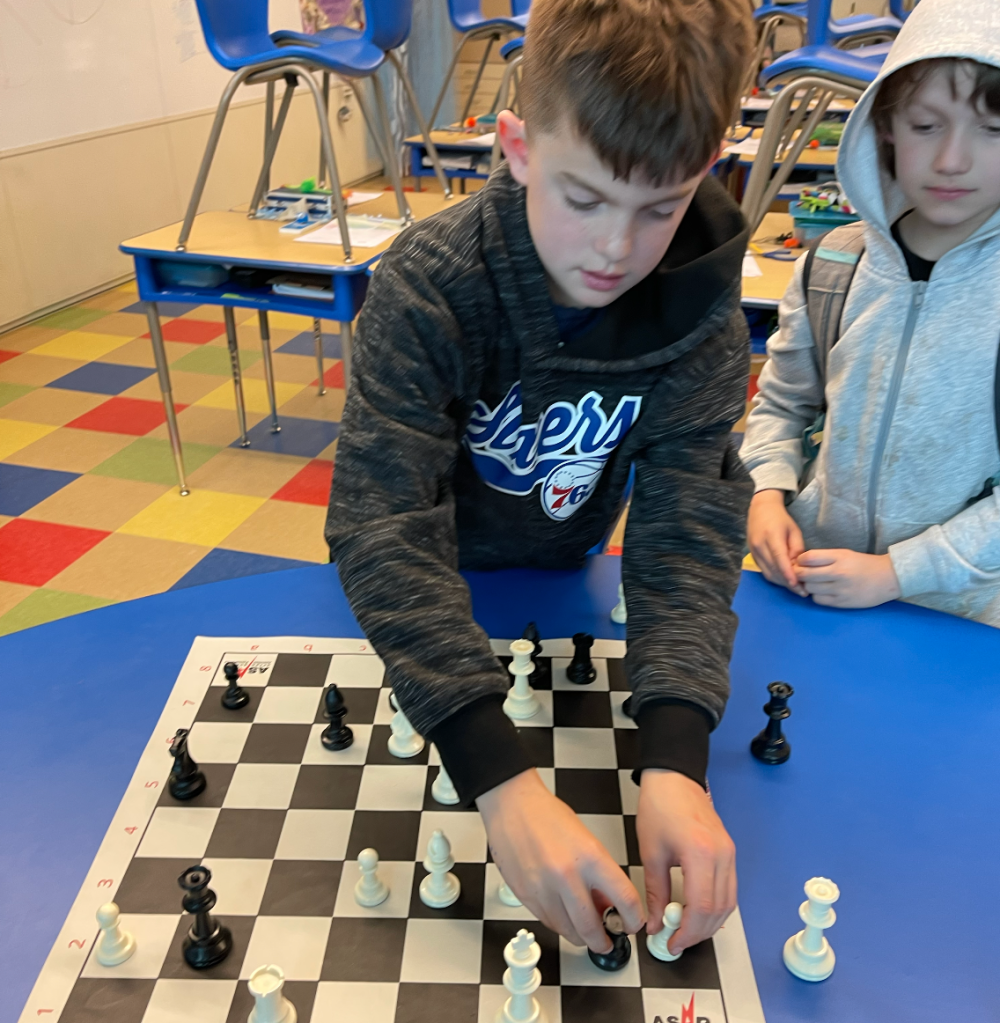


 Page 11 within introduction to “Learning Transformed: 8 Keys to Designing Tomorrow’s Schools, Today” by Thomas C. Murray and Eric C. Sheninger (2017) discusses the typical high school diploma’s lessening value. The authors suggest that “the opportunities available for those with
Page 11 within introduction to “Learning Transformed: 8 Keys to Designing Tomorrow’s Schools, Today” by Thomas C. Murray and Eric C. Sheninger (2017) discusses the typical high school diploma’s lessening value. The authors suggest that “the opportunities available for those with 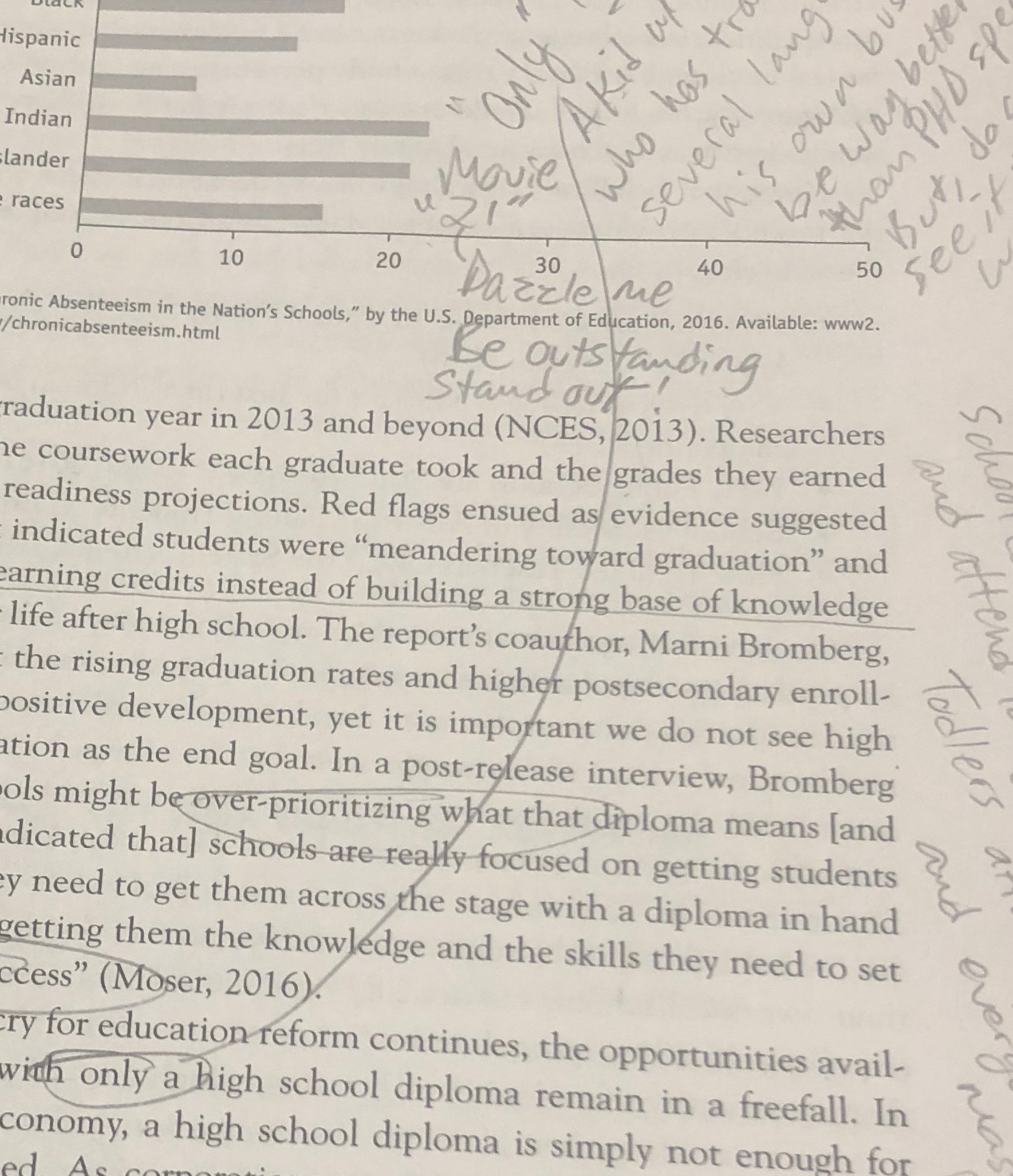 for emphasis.) This got me thinking. First, I made a text to film connection. Just recently I had rewatched the movie “21” (Luketic, 2008) starring Jim Sturgess, Laurence Fishburne, Kevin Spacey, and Kate Bosworth, and something that stood out to me more during this second viewing than the first was the premise for the whole movie: It opens with an interviewer asking Jim Sturgess’s character what he has done that stands out. Sturgess is applying for a grant that would fund his education at Harvard Medical School. The interviewer points out all of the impressive credentials that the applicant has earned, along with powerful letters of reference… But… he tells Sturgess that there are thousands of applicants with similar qualifications. He is going to need to “dazzle”.
for emphasis.) This got me thinking. First, I made a text to film connection. Just recently I had rewatched the movie “21” (Luketic, 2008) starring Jim Sturgess, Laurence Fishburne, Kevin Spacey, and Kate Bosworth, and something that stood out to me more during this second viewing than the first was the premise for the whole movie: It opens with an interviewer asking Jim Sturgess’s character what he has done that stands out. Sturgess is applying for a grant that would fund his education at Harvard Medical School. The interviewer points out all of the impressive credentials that the applicant has earned, along with powerful letters of reference… But… he tells Sturgess that there are thousands of applicants with similar qualifications. He is going to need to “dazzle”. 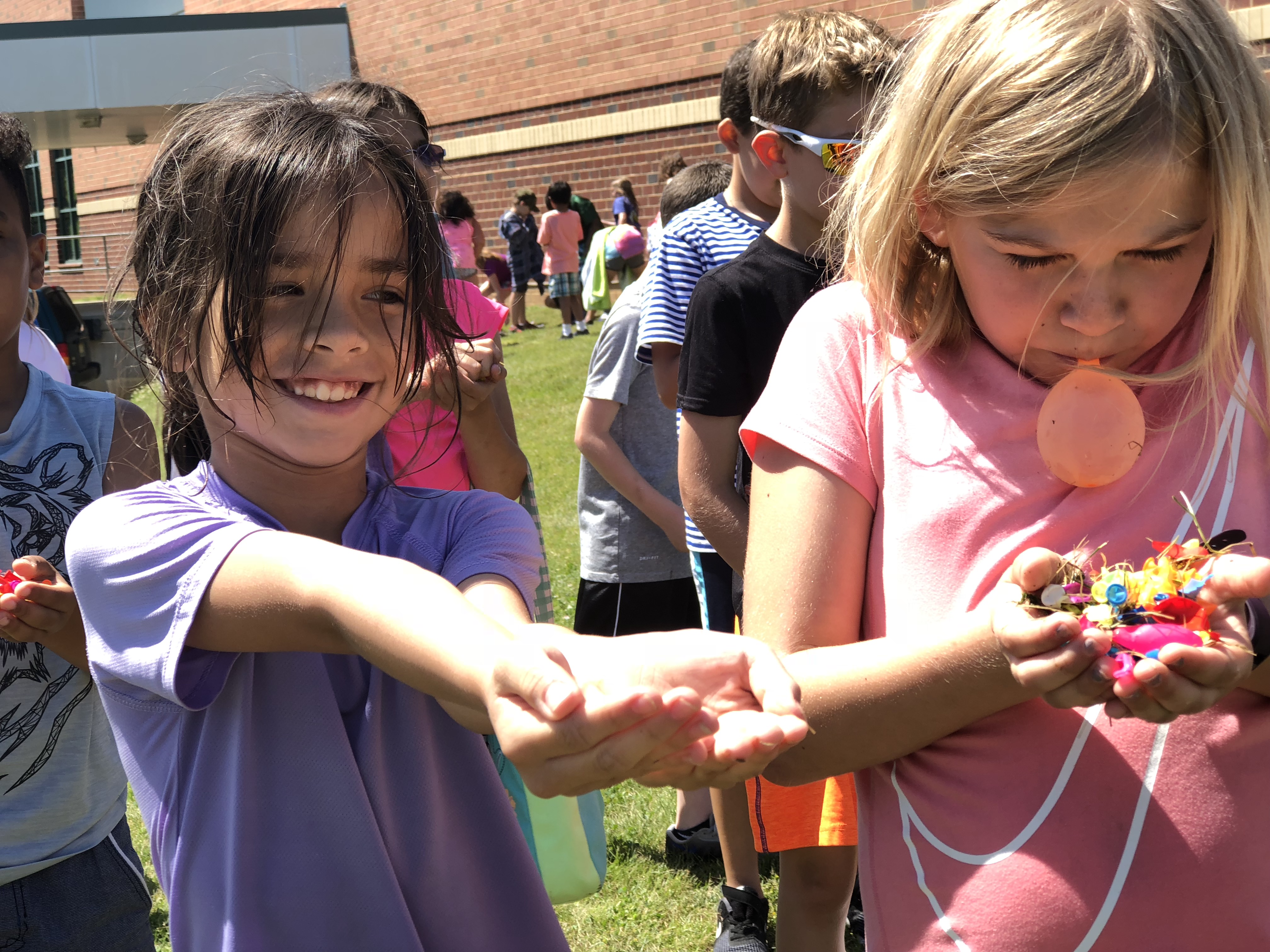


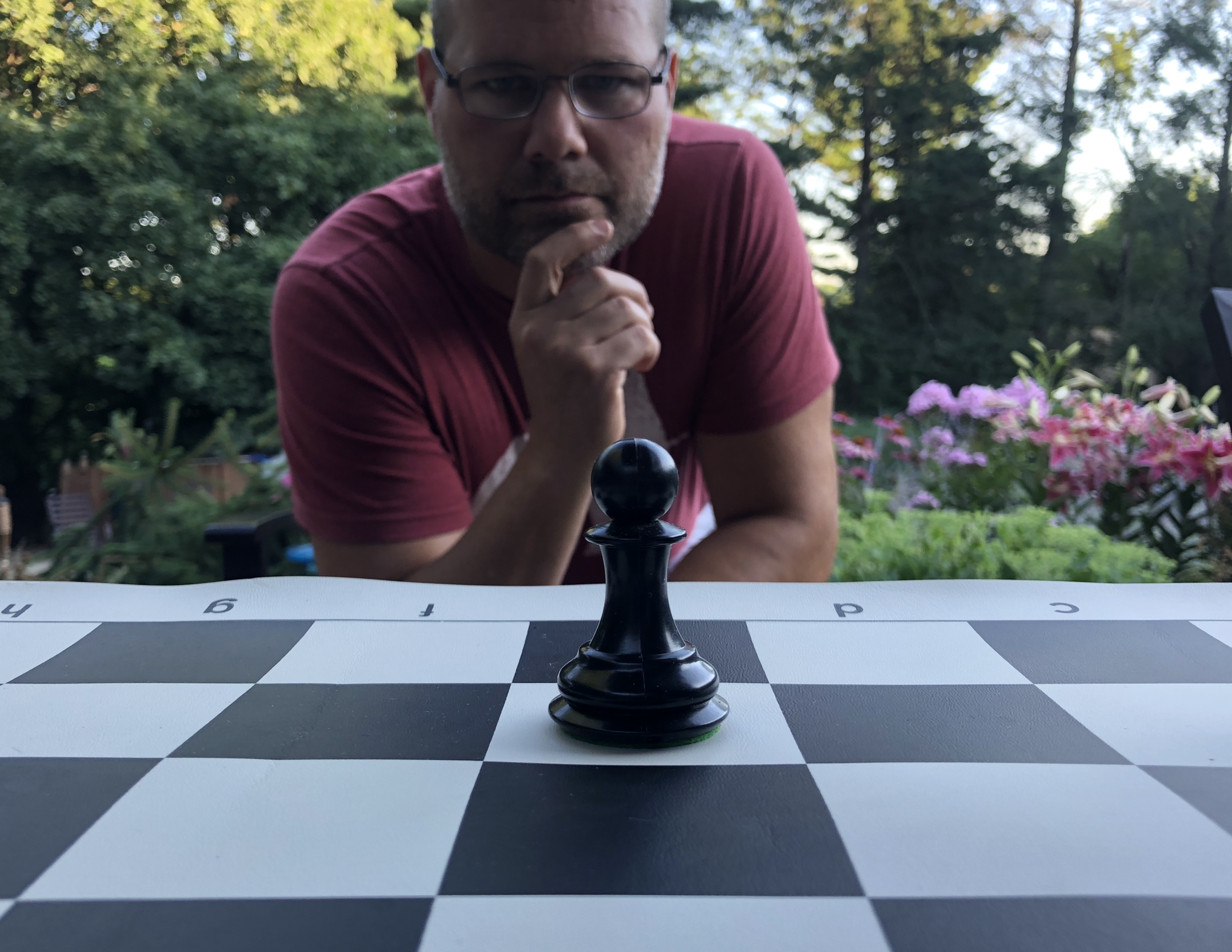
 who could teach a plant to play competitive chess. He cleared the chess board of half its pieces. Yesterday, we learned all about how to help kids comprehend the use of every chess piece, save one. This one covered two entire ranks* of the board before me.
who could teach a plant to play competitive chess. He cleared the chess board of half its pieces. Yesterday, we learned all about how to help kids comprehend the use of every chess piece, save one. This one covered two entire ranks* of the board before me.  “No other piece has more rules governing it than the pawn,”
“No other piece has more rules governing it than the pawn,”  these rules do NOT protect the weakest member of the team. On the contrary, it is the rules that make it weak. The pawn is not allowed to retreat; It can’t move backward. While other pieces can simply land on a space, capturing the piece occupying the square, a pawn is not allowed to attack straight on; It must attack diagonally. This restricts its movement, so that the pawn cannot move forward when something is blocking it. Pawns get stuck all over the board, forced to wait for the pieces in front of them to be captured or moved. Ironically, the ONE unique power of the pawn, its ability to move two squares forward for its first move, can even be stripped away through
these rules do NOT protect the weakest member of the team. On the contrary, it is the rules that make it weak. The pawn is not allowed to retreat; It can’t move backward. While other pieces can simply land on a space, capturing the piece occupying the square, a pawn is not allowed to attack straight on; It must attack diagonally. This restricts its movement, so that the pawn cannot move forward when something is blocking it. Pawns get stuck all over the board, forced to wait for the pieces in front of them to be captured or moved. Ironically, the ONE unique power of the pawn, its ability to move two squares forward for its first move, can even be stripped away through 
